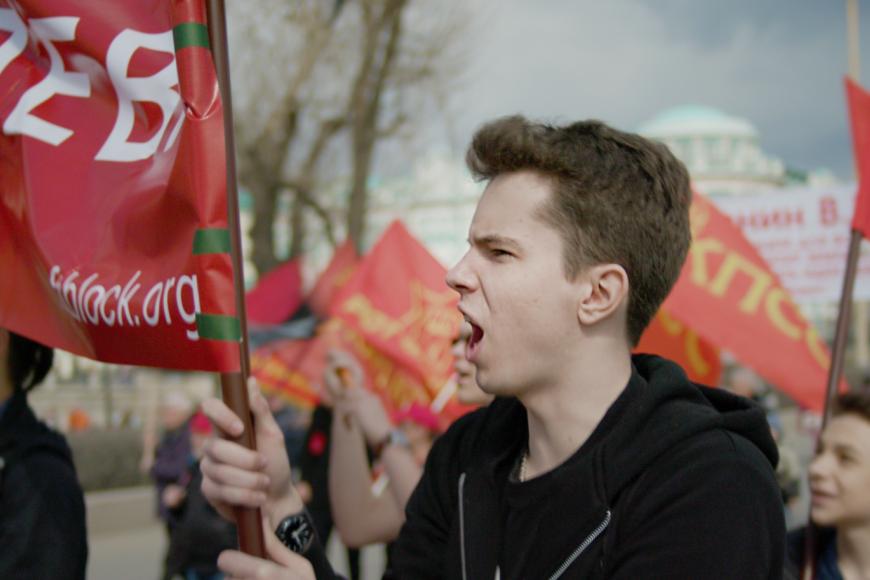
The Box
Tomaž Pavkovič finds reams of film material in a box that tells not only the story of his family but of a whole country: His father’s life ran almost parallel to the development of Yugoslavia, which permeates each of his recordings. The parades in the countryside, later the move to the city and life as a working-class family, in between always President Tito, even if only as a tattoo on a diver’s chest. The sons are left with the abstract memory of a state that has ceased to exist, that is itself a box. Do the images you find in the box tell you something about yourself, too?
The essayistic off-text by the Croatian poet Marko Pogačar, written in close collaboration with the director, frequently describes scenes that are shown at an entirely different point in the film – gaps yawn between the representation and one’s memory that can only be approached by circling them. To do this, not the least tools the film uses are an idiosyncratic, driving selection of music and a good dose of dry humour.


